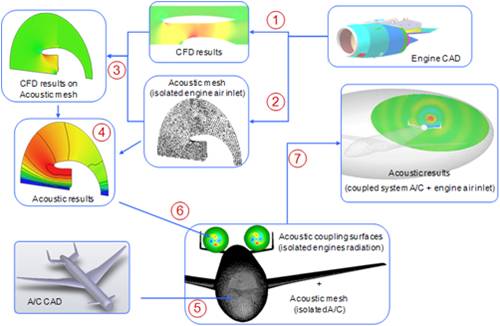SIMDAT

The research and development of generic business level service infrastructures supporting federated problem solving environments has demonstrated significant benefits to engineers.
In 2004, the Grid hype was at its peak, promising industry the ability to participate in dynamic value networks accessing heterogeneous resources distributed in a globally connected Internet. Today the term has limited value and has returned back to its origins as a technology supporting access to computational resources. Influential projects such as SIMDAT recognised this transition and adopted a service-oriented approach consisting of flexible, interoperating services rather than a monolithic Grid infrastructure. The choice of service-orientation proved vital for the successful integration and acceptance of SIMDAT's generic-enabling infrastructure in different industrial application sectors (automotive, aerospace, pharmaceutical and meteorology) and as a channel for the evolution from Grids to an Internet of Services.
Secure Society Smart ManufacturingProject Outcomes
The SIMDAT infrastructure is based on IT Innovation’s GRIA software, highlighting how our approach to security and management of services delivers the dynamics and accountability necessary for businesses to undertake collaborative design. SIMDAT demonstrated how service-oriented architectures can support a range of collaboration scenarios required by industrial applications, from virtual organisations to value networks, and how by incorporating a standardised message structure vertical integration with sector-specific tooling can be achieved. Our research focused on business level management and on how SLA (Service Level Agreement) management services can be used to support the monitoring, constraining and billing for service usage for a wide variety of applications that was essential to the projects success. We also demonstrated how contextualised registries incorporating security policies can be integrated with enterprise procurement systems. Using these foundation techniques we demonstrated how the infrastructure can support complex scenarios such as 3rd party licensing for on-demand services and collaborative data management (illustrated below).

SIMDAT Acoustic Simulation Process in Aircraft Design
After more than 10 years of research and development into Grid technology the baton has been handed to the Internet of Services as industry demands still greater flexibility, diversity and accountability. SIMDAT has shown how service-oriented technologies can be used to exploit the Internet for the collaborative design of complex products.
Project Fact Sheet
The SIMDAT project was a 50 month project funded by the EC Sixth Framework Programme.
Coordinator: Fraunhofer-Gesellschaft, Germany
More information: http://cordis.europa.eu/project/rcn/71837_en.html
SIMDAT received research funding from the EC’s Sixth Framework Programme.